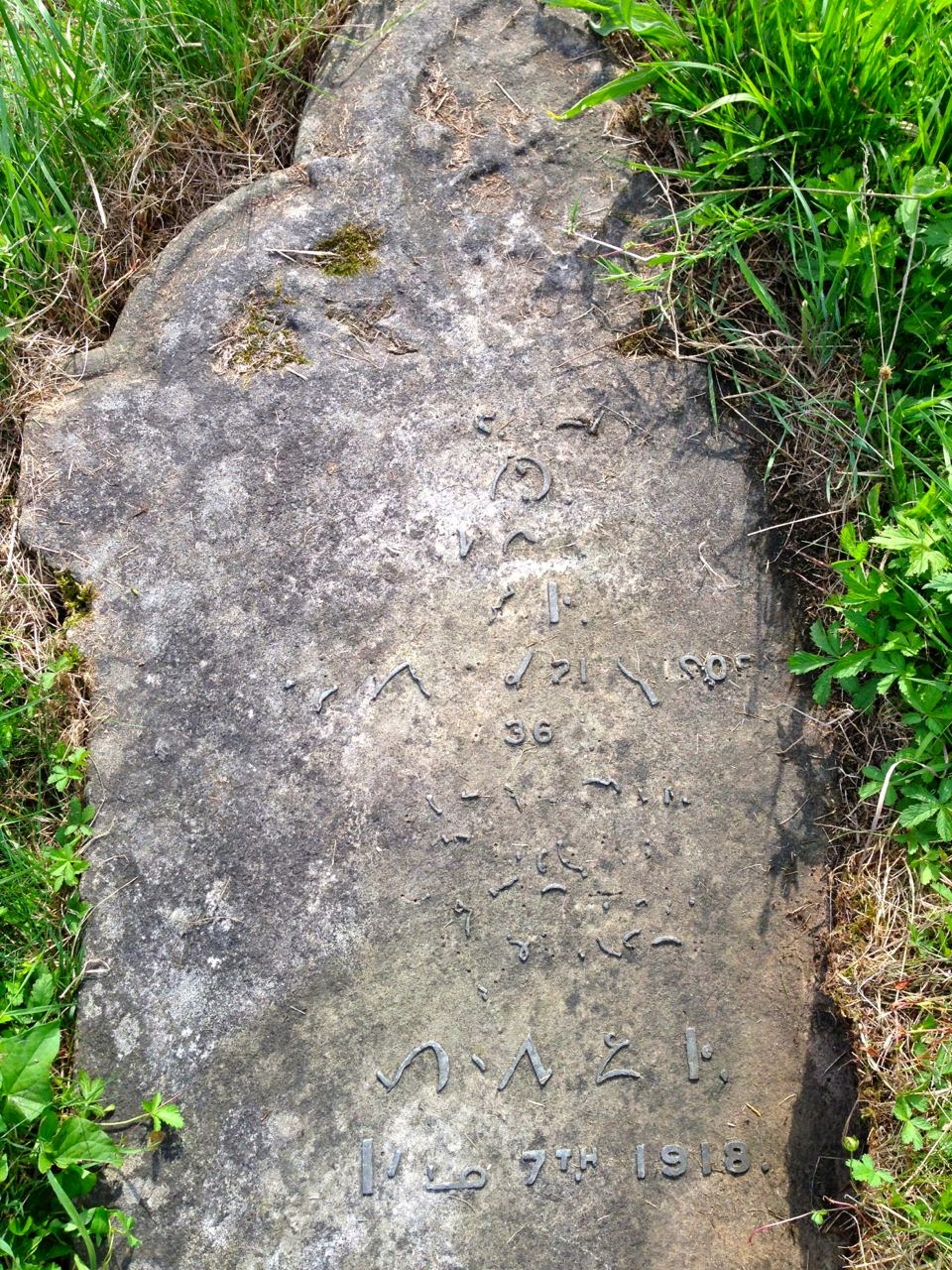That best portion of a good man’s lifeHis little, nameless, unremembered actsOf kindness and of love.
William Wordsworth, ‘Tintern Abbey’
For the growing good of the world is partly dependent on unhistoric acts; and that things are not so ill with you and me as they might have been, is half owing to the number who lived faithfully a hidden life, and rest in unvisited tombs.
 |
This view of (West) Hampstead Cemetery, seemingly unchanged since the
nineteenth century, is just a few paces from the little patch of meadow
that is the haunt of the Gatekeeper butterfly. |
There is an especially poignant example of an unvisited tomb, of an ordinary life of anonymous goodness, in our local cemetery. One day this summer, Kathleen and I located a gravestone we had read about and, having cleared away the overgrown grass, photographed the inscription which is written in Pitman’s reporting style of shorthand.
 |
| Photo by KR |
The translation is as follows:
In loving memory of Louisa, the dearly loved wife of William Day, who fell asleep in Jesus on February 21, 1905, aged 36.
Weep not for me, my friend so dear, I am not dead, but sleeping here. In faith I lie, my grave you see, Prepare yourself to follow me.
Louisa’s husband once explained the unusual epitaph: ‘We had not been married long before my wife fell ill of consumption. She grew rapidly weaker and, not being able to move, took up the study of shorthand to pass away the long days. She became so interested that she asked me to learn shorthand, too, and so day after day I sat at my wife’s bedside while she gave me lessons. She had the most wonderful patience, and when too weak to speak would point out my mistakes by signs. I shall never forget those days, nor my wife’s delight when I gained a speed certificate. Shortly afterwards she died. I thought that the most fitting way to commemorate her was to have the inscription on her tombstone written in the symbols which she loved so much.
Hampstead Cemetery was consecrated in 1876, the year George Eliot published her last novel Daniel Deronda. Eliot herself is buried three miles away in Highgate Cemetery. The first part of the inscription is from the second and third lines of her own poem, ‘The Choir Invisible’ (1867) and reads: ‘Of those immortal dead who live again / In minds made better by their presence’.
 |
| Photos by KR |
The poem ends:
May I …Coda
Be the sweet presence of a good diffus’d,
And in diffusion ever more intense!
So shall I join the choir invisible
Whose music is the gladness of the world.
 |
| Photo by EP |
… or like the butterfly
Whose wing might cause the dreaded hurricane
Do our faintest flutters never die
But echo through the cosmos, and remain?
(Excerpt from EP’s sonnet for State of the Art, Part II )
______________________________
See the News blog for reviews of My Perfect Mind and tour dates. And check back here soon for a belated film blog.









